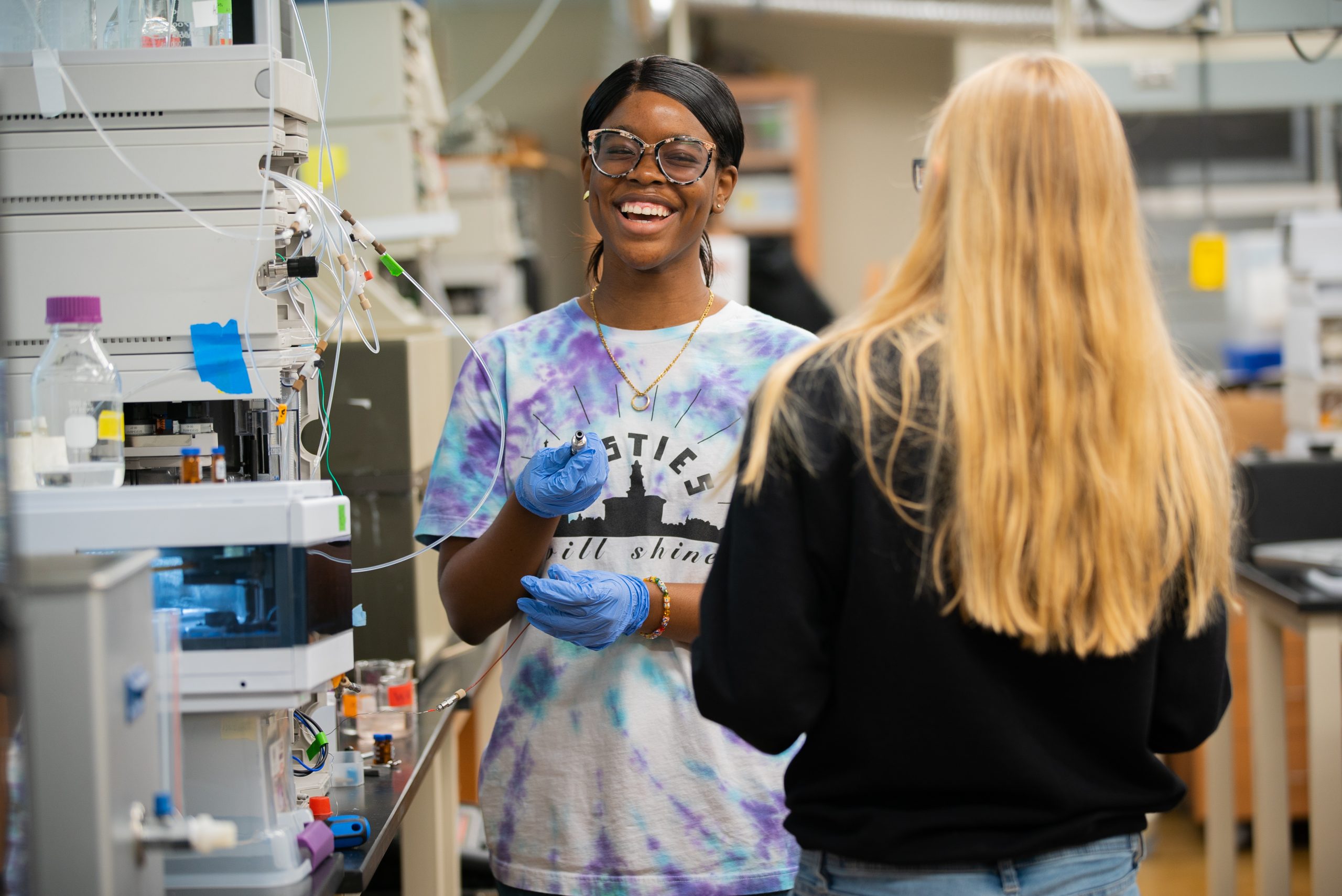With the recent expansion and renovation of Nobel Hall of Science, student research in the Stoll Laboratory, led by chemistry professor Dwight Stoll, fizzes with opportunities.
Home to the Departments of Biology, Chemistry, Geography, and Geology, Nobel Hall boasts new laboratories, new teaching facilities, and new equipment within a 177,300 square foot building that rivals those of top liberal arts colleges in the nation.
For Stoll and his students, the extra space means freedom to work more efficiently. Students can shuffle around scientific instruments at different stages in their research, or they can utilize nearby collaboration rooms for discussing results and running computer simulations. Combined with new instruments connected via the Internet, the laboratory is a prime space for teamwork.
“These changes might sound trivial, but they’re really valuable and have facilitated some experiments that would have been really hard to do previously,” said Stoll. “They’ve both increased the volume of experiments we were already doing, but also added some capabilities that we simply didn’t have before.”

For years, the laboratory has facilitated collaboration between Gustavus researchers and institutions around the globe, as well as industry partners. In addition to funding, these partnerships provide opportunities for students at Gustavus to tackle real-world problems that connect them with experts in a range of fields. “For example, we have a project that’s focused on vaccines at the moment,” explained Stoll, “so the people that we’re working with are experts in the characterization of vaccines. They can define the problem for us, and in return, we have some expertise that moves their science along.”
For Stoll, an expert in an analytical chemistry technique called liquid chromatography, moving science along often means finding better, more efficient ways to run experiments by generating richer data in a fraction of the time or by running detailed computer simulations.
“The data from my research will be used to improve predictions we can make using high-performance liquid chromatography (HPLC) simulation tools,” said Angel Obiorah ’24, a current student in Stoll’s lab. “The goal is to reduce time spent actually conducting experiments in research, and to improve cost effectiveness in labs where hundreds of such methods are carried out daily using expensive instrumentation.”
These projects with real-world applications often lead to internships and jobs in STEM, but Stoll believes that research at Gustavus provides valuable tools for any career path. From keeping organized notes to presenting findings at national conferences, students in his laboratory hone the skills that translate into future success.
“Professor Stoll has been very supportive and present during this summer research experience, from setting days aside to talk to each member of this lab about their future endeavors to taking us out for team lunch,” said Obiorah. “He has helped me step out of my comfort zone and given me space to grow and test out my own ideas while giving pointers on how to improve them. His genuine interest in my success has helped me to become more confident in my abilities.”
“Dr. Stoll has been an awesome professor to work with,” echoed Maria Sylvester ’24. “He is very involved in each project and is always willing to answer questions and provide guidance, yet still encourages a lot of independent work. I’ve definitely learned a lot over this summer!”
Looking toward future summers, Stoll sees potential for growth both for his students and research at Nobel Hall as a whole. “At this point in their careers, a lot of students are exploring intellectually, and these research projects provide them with an opportunity to do that while working on something that’s very meaningful, exciting, and cutting edge. I’m optimistic that going forward we will find a way to do more, and I’m excited about that because those experiences are really impactful for students.”

Leave a Reply